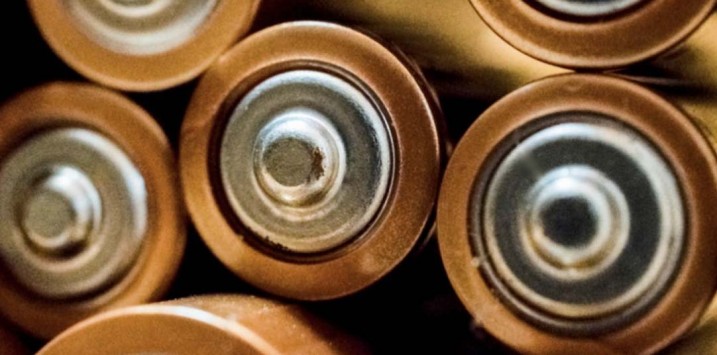Are new batteries the latest way to lose money?
It’s easy to be excited by new technology, like artificial intelligence, 3D printing, autonomous electric vehicles, and ride sharing. And for investors, new tech brings so many exciting opportunities to speculate – and lose. Which brings me to the recent wave of speculation in commodities for making the latest batteries, like cobalt and lithium.
EXCLUSIVE CONTENT
subscribe for free
or sign in to access the article
MORE BY RogerINVEST WITH MONTGOMERY

Roger Montgomery is the Founder and Chairman of Montgomery Investment Management. Roger has over three decades of experience in funds management and related activities, including equities analysis, equity and derivatives strategy, trading and stockbroking. Prior to establishing Montgomery, Roger held positions at Ord Minnett Jardine Fleming, BT (Australia) Limited and Merrill Lynch.
He is also author of best-selling investment guide-book for the stock market, Value.able – how to value the best stocks and buy them for less than they are worth.
Roger appears regularly on television and radio, and in the press, including ABC radio and TV, The Australian and Ausbiz. View upcoming media appearances.
This post was contributed by a representative of Montgomery Investment Management Pty Limited (AFSL No. 354564). The principal purpose of this post is to provide factual information and not provide financial product advice. Additionally, the information provided is not intended to provide any recommendation or opinion about any financial product. Any commentary and statements of opinion however may contain general advice only that is prepared without taking into account your personal objectives, financial circumstances or needs. Because of this, before acting on any of the information provided, you should always consider its appropriateness in light of your personal objectives, financial circumstances and needs and should consider seeking independent advice from a financial advisor if necessary before making any decisions. This post specifically excludes personal advice.

Thanks Roger, a sober and wise observation.
My guess is in the rush for market share and dominance /development there will be
Casulities. Moreover batteries have a limited life span I believe, and therefore
Leave room for other technologies to be developed.
I would love to see more research into magnetic power development.
We seem to be poised right now between the horse & cart and motorvehicle
Inventions.
The Jetsons are still away off yet………
Roger yes you are correct in saying that lithium is not the only compound for storage of energy in batteries, Industries all over the World also are well in advance and are focused on VANADIUM as it lasts longer and provides longer longevity of larger scale battery power. In which to help reduce costs to businesses and a good example here in Australia is BLUESCOPE STEEL Port Kembla.
In order to create sales of your product you needs a sales person and MR MUSK is just that a Salesperson. The spin off from the development in Industry Battery Power will also eventually be provided for domestic consumption.
This is not a science course in the chemistry of batteries. However, don’t think that batteries composed of lithium compounds are the pinnacle of electrical energy storage technology. Don’t be in awe of lithium technology because Mr Musk is promoting it for storage of energy from home solar installations or a large uninterruptible power supply (‘UPS’) in South Australia. Tesla is just a brand name since the batteries are made by Panasonic. While Tesla is a manufacturer of electric vehicles it is not a developer of batteries.
Sure demand for lithium will increase and as a result will create more jobs for mining and processing the element (Li).
On the other hand, there are scientists who are developing a ‘better mouse trap’ in the form of electrical energy storage (batteries) and may not require Li at all. For example scientists at RMIT are developing a battery which uses Carbon to store energy, https://www.rmit.edu.au/news/all-news/2018/mar/all-power-to-the-proton . Providing the prototype can be scaled up and perform as good if not better than Li batteries, it may replace Li. The RMIT battery is not the only developer of new battery technology. I just listed this as an example to say not to get into a hype and hysteria on Lithium batteries. Just by exploiting Li alone may not leave much Li in the future.
In the end in the future for home storage of electricity or for transport. the battery must be able store as much energy as battery for an electric vehicle or home use and must be able to be charged in as short amount of time as possible.
A point on charging time. Whether a battery charges slowly or fast, it is the same amount of energy to charge a battery for a car or home. The rate of changing a battery bears no relation to the amount of energy stored in the battery.
Regards
Anthony LLB(UNSW) of Belfield
it doesn’t say much good about mankind and our economic / financial systems if investing in future worldchanging technologies is bad investing.
so we stick to wood and stones ?
Just be aware that picking winners among constantly advancing technology is extremely challenging. It’s probably easier to short the technology being superseded.
I don’t understand the chemistry but I was reading that urea might be a battery option. if so battery power would be very cheap.
This could bring about changes such as no need for a grid, allow greater decentralisation.
Much of the above applies equally to solar panels. Tremendous excitement, graphs all trending towards the day when solar rules the roost but profits are hard to realise. Google “solar panel bankruptcy” and the results speak for themselves. The ease with which the bright future of solar panels, batteries and electric cars can be apparently seen means all and sundry are piling in thinking they are all on a sure thing. What could go wrong?